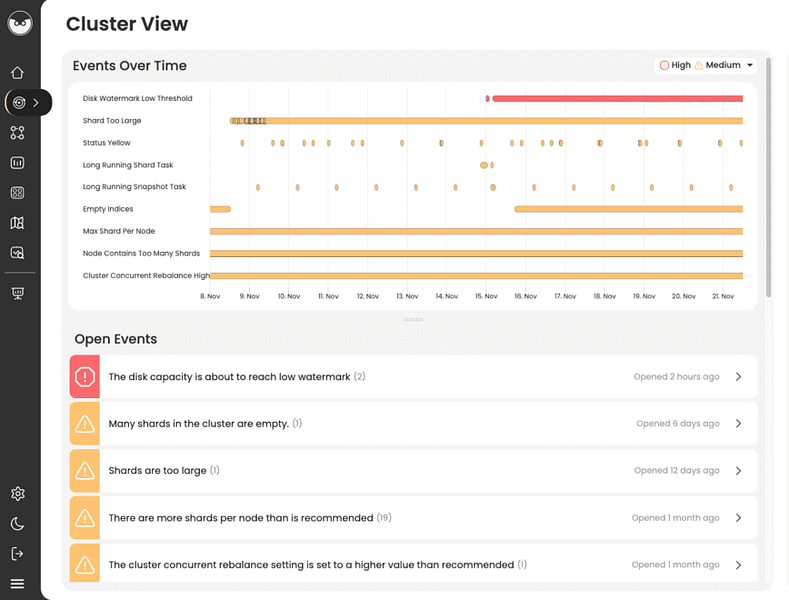Opster Team
Last updated: Oct 30, 2022
| 1 min readIn addition to reading this guide, we recommend you run the Elasticsearch Health Check-Up. It will detect issues and improve your Elasticsearch performance by analyzing your shard sizes, threadpools, memory, snapshots, disk watermarks and more.The Elasticsearch Check-Up is free and requires no installation.
To manage all aspects of your OpenSearch operation, you can use Opster’s Management Console (OMC). The OMC makes it easy to orchestrate and manage OpenSearch in any environment. Using the OMC you can deploy multiple clusters, configure node roles, scale cluster resources, manage certificates and more – all from a single interface, for free. Get access.
Quick links
Overview
To put it simply, a node is a single server that is part of a cluster. Each node is assigned one or more roles, which describe the node’s responsibility and operations. Data nodes store the data, and participate in the cluster’s indexing and search capabilities, while cluster-managers nodes are responsible for managing the cluster’s activities and storing the cluster state, including the metadata.
While it is possible to run several node instances of OpenSearch on the same hardware, it’s considered a best practice to limit a server to a single running instance of OpenSearch.
Nodes connect to each other and form a cluster by using a discovery method.
Roles
Cluster-manager
Cluster-managers are in charge of cluster-wide settings and changes – deleting or creating indices and fields, adding or removing nodes and allocating shards to nodes. Each cluster has a single cluster-manager node that is elected from the cluster-manager eligible nodes using a distributed consensus algorithm and is reelected if the current cluster-manager node fails.
Coordinating node
Coordinating nodes are nodes that do not hold any configured role. They don’t hold data and are not part of the cluster-manager eligible group nor execute ingest pipelines. Coordinating nodes serve incoming search requests and act as the query coordinator running query and fetch phases, sending requests to every node that holds a shard being queried. The coordinating node also distributes bulk indexing operations and route queries to shards based on the node’s responsiveness.
Find & fix Elasticsearch problems
Opster AutoOps diagnoses & fixes issues in Elasticsearch based on analyzing hundreds of metrics.
Fix Your Cluster IssuesConnect in under 2 minutes

Matt Watson
CTO at Stackify





